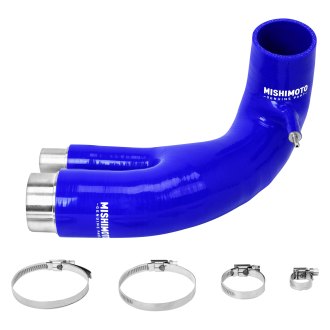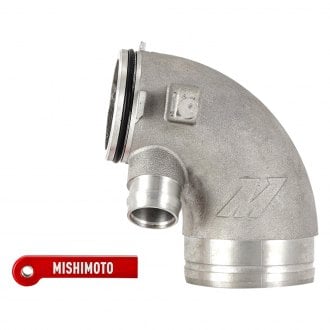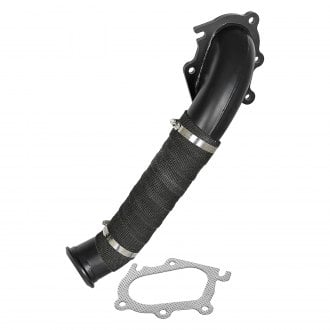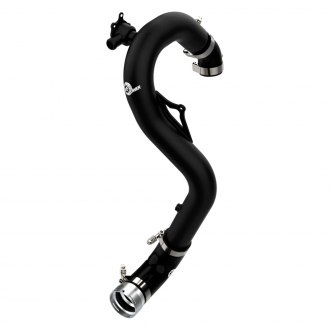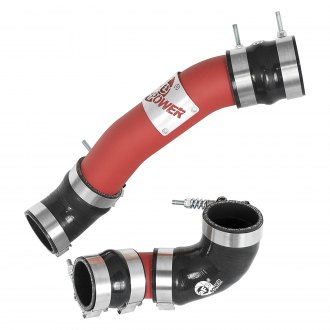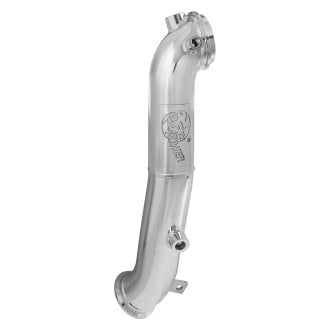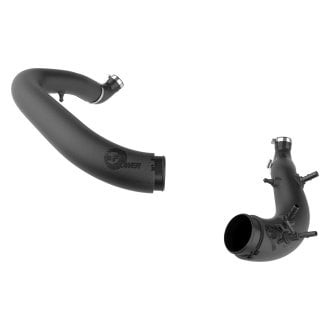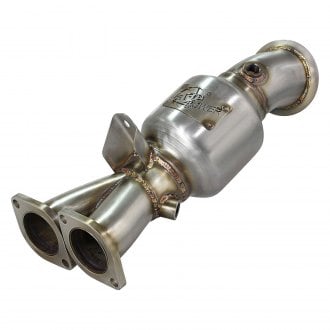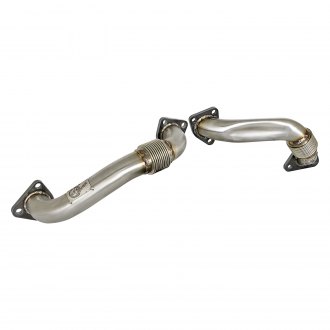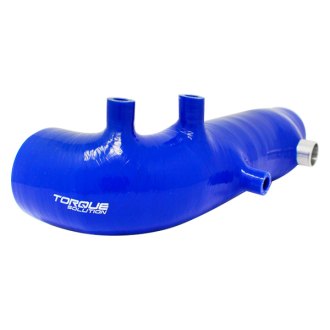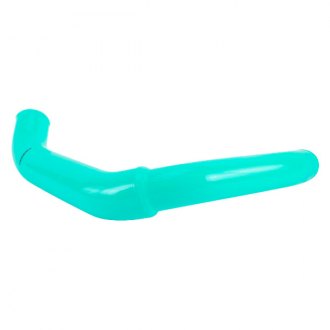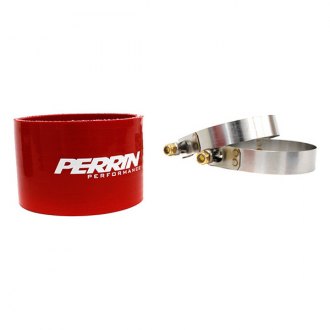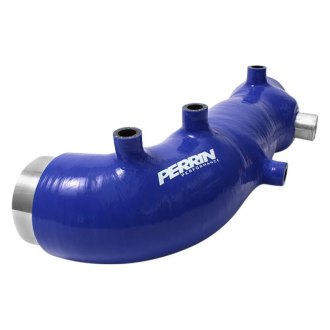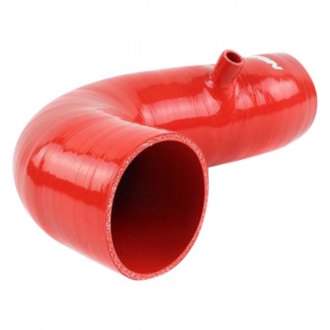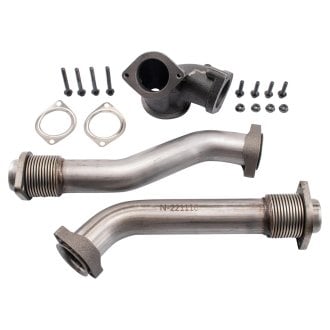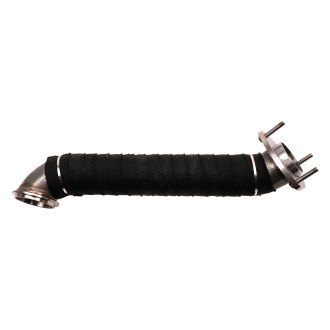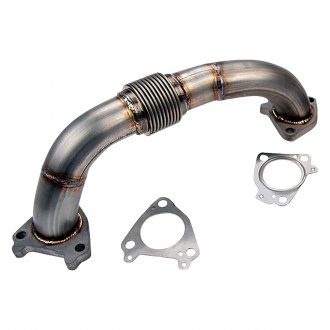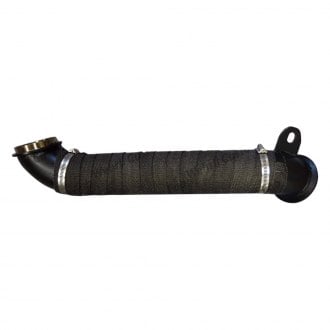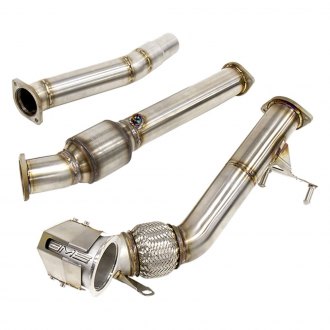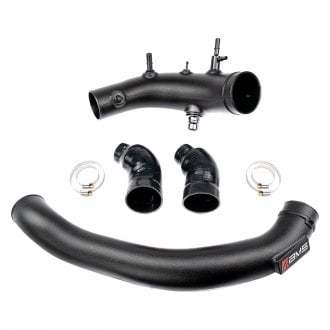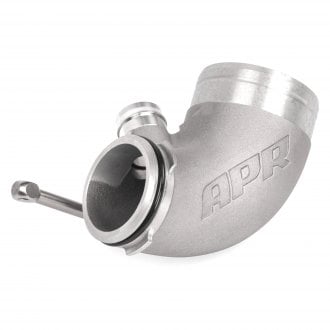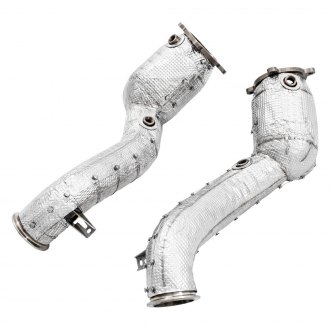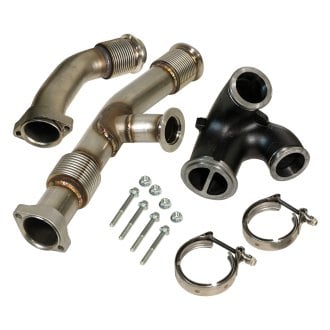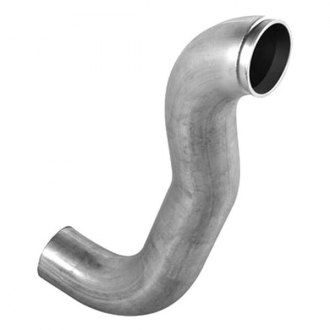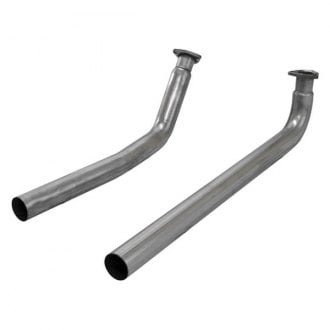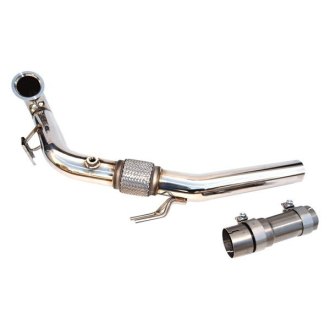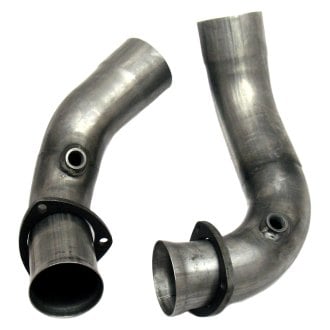Turbocharger Pipes, Hoses & Clamps
Select Department
-
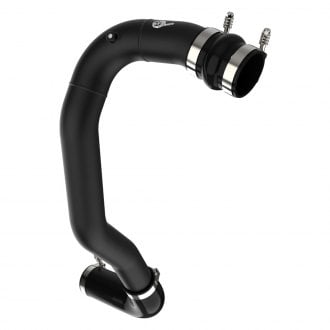
-
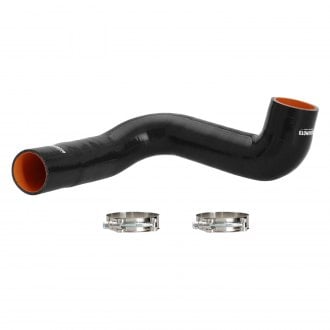
-
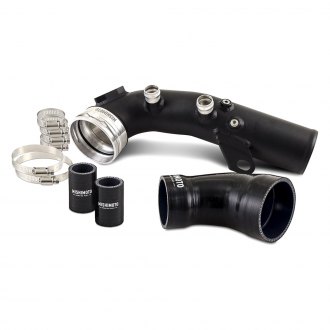
-

-

-
 aFe® - ATLAS™ Exhaust Downpipe$168.00 - $273.00
aFe® - ATLAS™ Exhaust Downpipe$168.00 - $273.00 -
 aFe® - BladeRunner™ Hot Charge Pipe$296.10 - $484.05
aFe® - BladeRunner™ Hot Charge Pipe$296.10 - $484.05 -
 aFe® - BladeRunner™ Intercooler Tubes$212.00 - $689.85
aFe® - BladeRunner™ Intercooler Tubes$212.00 - $689.85 -
 aFe® - Mach Force XP Downpipe$403.20 - $441.00
aFe® - Mach Force XP Downpipe$403.20 - $441.00 -
 aFe® - Power Turbo Inlet Pipes$124.00 - $408.00
aFe® - Power Turbo Inlet Pipes$124.00 - $408.00 -
 aFe® - Twisted Steel Downpipe$1,203.30 - $1,656.90
aFe® - Twisted Steel Downpipe$1,203.30 - $1,656.90 -
 aFe® - Twisted Steel Up-Pipe$780.00
aFe® - Twisted Steel Up-Pipe$780.00 -
 Torque Solution® - Turbocharger Hose$245.32 - $264.92 + Free Shipping with iD FastTrack
Torque Solution® - Turbocharger Hose$245.32 - $264.92 + Free Shipping with iD FastTrack -

-

-

-

-
 iD FastTrack Extra Save $7.30TRQ® - Turbocharger Up Pipe Kit$123.32 - $146.24 + Save up to $7.30 with iD FastTrack
iD FastTrack Extra Save $7.30TRQ® - Turbocharger Up Pipe Kit$123.32 - $146.24 + Save up to $7.30 with iD FastTrack -
 Wehrli Custom Fabrication® - Downpipe$227.95 - $338.53
Wehrli Custom Fabrication® - Downpipe$227.95 - $338.53 -
 Wehrli Custom Fabrication® - Up-Pipe Kit$309.43 - $577.15
Wehrli Custom Fabrication® - Up-Pipe Kit$309.43 - $577.15 -
 Wehrli Custom Fabrication® - VGT Turbo Downpipe$179.45 - $212.43
Wehrli Custom Fabrication® - VGT Turbo Downpipe$179.45 - $212.43 -
 AMS® - Downpipe$514.05 - $1,445.25
AMS® - Downpipe$514.05 - $1,445.25 -
 AMS® - Turbocharger Inlet Pipe Kit$387.95 - $413.17
AMS® - Turbocharger Inlet Pipe Kit$387.95 - $413.17 -
 Save 10%APR® - Turbocharger Inlet Pipe$188.95 - $988.95$209.95 - $1,099.95Save 10%
Save 10%APR® - Turbocharger Inlet Pipe$188.95 - $988.95$209.95 - $1,099.95Save 10% -
 AWE Tuning® - Performance Downpipe$615.00 - $1,030.00
AWE Tuning® - Performance Downpipe$615.00 - $1,030.00 -
 BD Diesel Performance® - Turbocharger Up-Pipe Kit$411.95 - $694.95
BD Diesel Performance® - Turbocharger Up-Pipe Kit$411.95 - $694.95 -
 iD FastTrack Extra Save $10.00Diamond Eye® - Turbocharger Downpipe$71.20 - $235.97 + Save up to $10.00 with iD FastTrack
iD FastTrack Extra Save $10.00Diamond Eye® - Turbocharger Downpipe$71.20 - $235.97 + Save up to $10.00 with iD FastTrack -
 Save 10%Flowmaster® - Exhaust Downpipes$189.95 - $339.25$231.95 - $376.95Save 10%
Save 10%Flowmaster® - Exhaust Downpipes$189.95 - $339.25$231.95 - $376.95Save 10% -
 Invidia® - Downpipe$891.10
Invidia® - Downpipe$891.10 -
 JBA® - Down Pipes$335.25 + Free Shipping with iD FastTrack
JBA® - Down Pipes$335.25 + Free Shipping with iD FastTrack
A turbocharger consists of a turbine wheel and a compressor wheel that rotate on a common shaft in an aluminum housing. The turbine wheel is plumbed into the exhaust system and exhaust flow spins the turbine blades, which in turn drives the compressor wheel. The compressor section of the turbo is part of the air intake system. Air is drawn through the air filter and intake tube, compressed by the compressor wheel and forced into the intake manifold. Most turbocharged vehicles have an intercooler that is part of the air intake system between the turbo outlet and intake manifold. Turbocharger shaft bearings are lubricated with engine oil and some turbos are liquid cooled. A network of pipes and hoses is required to route these gases and liquids and if you need replacements for any of them, you’ll find them right here on our digital shelves.
The turbo up pipe routes exhaust from the manifold to the turbine housing. Some vehicles do not have an up pipe because the turbocharger is mounted directly to the manifold. The downpipe connects the turbine housing to the exhaust system so the exhaust can be routed to the rear of the vehicle and out the exhaust pipe. Most up pipes are made of stainless steel for resistance to corrosion, and some multi-piece up pipes include a cast iron section that connects to the turbocharger. Some up pipes incorporate a flex joint to absorb movement and thermal expansion. On many of the up pipes we offer, new metal gaskets and mounting bolts are included.
When a turbocharger compresses the intake air, its temperature also rises, and if this hot pressurized air is allowed to enter the cylinders fresh from the turbo, it could cause engine damaging detonation. To cool the hot compressed air, it’s routed from the turbo outlet through an intercooler, and then to the intake manifold. The intercooler lowers the air temperature, which increases its density and oxygen content for an even greater increase in power and prevents engine knock. The intercooler is connected to the turbocharger and intake manifold with pipes and hoses. If any of the pipes, hoses or couplers are compromised, the leak could reduce turbo pressure and performance and cause a too rich or too lean condition. Most hoses and couplers are made of superior materials like silicone to resist heat and oil contamination and to ensure durability.
The turbine and compressor wheels in a typical turbocharger can spin as high as 100,000-150,000 rpm or more. Combine this extreme speed with the intense heat from the exhaust flow past the turbine wheel and you have perhaps the harshest operating conditions for any type of bearing. Modern turbocharger shaft hearings are of the most advanced design to provide trouble-free operation for many miles, nevertheless, without proper lubrication and cooling they will quickly fail. Turbo shaft bearings are typically lubricated with the same oil that lubricates internal engine parts, delivered under pressure to the bearings via a turbo oil feed line. The oil flows back to the engine through the turbo oil return line. On most applications the engine oil also cools the turbo shaft bearings as well. Turbo oil feed and return lines are typically made of metal tubing but may also be constructed with high-temperature resistant flexible hose and braided steel sheathing.
On some vehicles, the turbo shaft bearings are liquid cooled, and the turbocharger housing is incorporated in the engine cooling system, including of course, the necessary hoses to conduct coolant to and from the turbocharger. Some vehicles may have an auxiliary water pump that’s just for circulating coolant through the turbocharger. Whatever turbocharger pipes, hoses, lines, couplers or clamps you’re in need of, we have the replacements to restore long-lasting performance and durability. Our turbocharger components are manufactured according to original equipment specifications, so when service is completed you can count on the performance and reliability your vehicle was designed to deliver. Better still, nowadays, you have plenty of options for upgrading your factory turbo. They are all designed to help you squeeze even more power out of your engine. Aftermarket inlet pipes, downpipes, and up-pipes are one of these upgrades. In our online store, you’ll discover a wide variety of superior-quality turbo inlet pipes, downpipes, and up-pipes from industry-leading manufacturers.
Browse by Part Name
Featured Brands
Related Categories
 Turbochargers & Components
Turbochargers & Components Turbocharger Blow-Off & Diverter Valves
Turbocharger Blow-Off & Diverter Valves Intercoolers
Intercoolers Intercooler Hoses
Intercooler Hoses Turbo & Superchargers Lines, Hoses
Turbo & Superchargers Lines, Hoses Turbo & Superchargers Mounting
Turbo & Superchargers Mounting Superchargers & Components
Superchargers & Components Turbocharger Wastegates
Turbocharger Wastegates Turbocharger Boost Management
Turbocharger Boost Management Turbo Heat Shields & Blankets
Turbo Heat Shields & Blankets Exhaust Brakes & Air Shutdown Valves
Exhaust Brakes & Air Shutdown Valves
Turbocharger Pipes & Clamps Reviews

